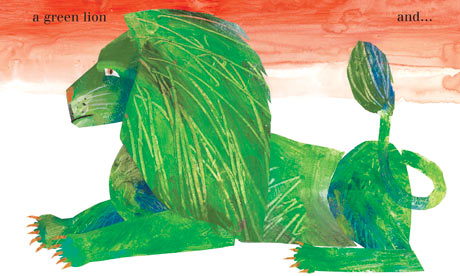It makes me happy that The Artist who Painted a Blue Horse is a hit in your family. I love all the pictures, but wasn't sure how it would play with kids as a book. There's a whole category of picture books which I see before they're published and I say, "It'll be great when it's a board book," and then I don't buy them as hardcover/paper page books because I can't see the appeal to older kids. I waffled on this one, but Carle's pictures pulled me in. I have a 3-foot tall poster of the blue horse from the cover on a wall at the store -- can be seen from quite a distance.
Maybe because business is getting busier and busier (yes, all the Christmas and Hanukkah books are on display already), I find my focus with the blog bouncing all over the place. This week I've come back to Linda Sue Park, a wonderfully versatile author. I've talked about A Long Walk to Water, set in the Sudan. She's written many books, both picture books and middle-grade novels. She even has a new Christmas book this year: The Third Gift, which taught me a lot about frankincense.
 Park is Korean-American, and many of her books include Korean themes. A Single Shard, for which she won the 2002 Newbery Award, is about a 12th century Korean potter and his apprentice. But the one I wanted to talk about today is about a contemporary Korean-American girl:
Park is Korean-American, and many of her books include Korean themes. A Single Shard, for which she won the 2002 Newbery Award, is about a 12th century Korean potter and his apprentice. But the one I wanted to talk about today is about a contemporary Korean-American girl: Project Mulberry. There are two things that make this book engagingly out-of-the-ordinary. First, it deals with kids' feelings about race, in age-appropriate ways. Julia and her friend Patrick want to do a project for the state fair, and her mother (who is Korean) suggests they raise silkworms. Julia doesn't want to be typecast as the Asian kid in her predominantly white small town, but doesn't know how to resist the silkworm idea. "I wanted a nice normal, All-American, red-white-and-blue kind of project," she writes.
Julia also sees that her mother is uncomfortable with black people -- it embarrasses her, but any attempts to confront her mother directly get deflected. There's a lovely scene when Patrick, Julia and her mother visit someone who they've been told might have mulberry leaves to feed to the silkworms. He answers the door, and Julia is surprised then apprehensive to discover he's black -- worried about her mother's reaction. The man is startled, he tells them, because he was expecting them to be white. The book is aimed at the fourth-to-seventh grade age range, and Park presents Julia's thought processes in an empathetic way, saying out loud those things which are often unspoken.
The other lovely unusual element of the book is that between all the chapters, there's a brief two-page discussion between the author and the main character, arguing about the direction the book should go.
There's a lot of negotiating about plot in these little interludes, and at one point Julia gets so angry that she refuses to participate in the discussion.Me: Do you want my opinion? I am not happy with the way things are going here. I hate the project idea, Kenny [her brother] is driving me nuts, and I still haven't found another Connecticut.Ms. Park: Actually, no -- I don't want your opinion. I've written other books, and only once has a character ever talked to me. You talk to me all the time, and I'm finding that hard to get used to.Me: Like right now, while you're in the -- ahem -- bathroom. Well, I don't care whether you want my opinion or not -- you're getting it. That was a terrible chapter.Ms. Park: Would it help if I said I'm sorry you're having such a hard time?Me: If you were really sorry, you'd go back and rewrite it.Ms. Park: You're the main character. You have to have a problem or two. If you didn't, there wouldn't be any story.
Project Mulberry is part of a genre of books which say: you're not a baby anymore; we (the authors) are going to talk to you about real stuff, and we know you'll understand it, but we're also going to remember that you're not a teenager yet. Part of the progression.
Love,
Deborah


i love project mulberry i recommended this to anyone
ReplyDelete